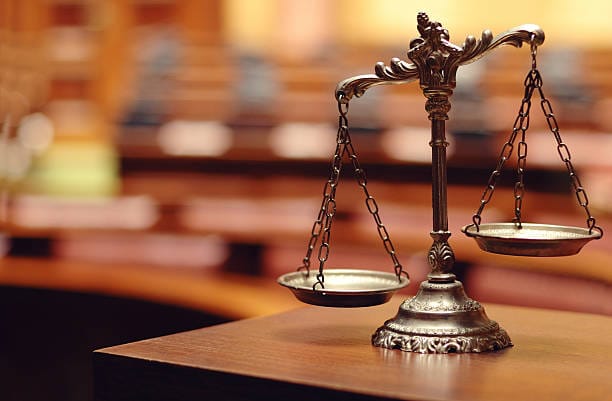LA Focus: Ridley-Thomas Defense Asserts Prosecutorial Missteps and Jury Bias, Call for Conviction Reversal

Elgin Nelson | June 11, 2024
The legal team defending Dr. Mark Ridley-Thomas slammed the U.S. Attorneys’ response to their appellate brief, characterizing their response arguments as convoluted and untethered to federal precedent as they laid the groundwork for the convictions to be reversed. It was on August 28, 2023, that Federal District Court Judge Dale S. Fischer sentenced Ridley-Thomas to 42 months in prison, three years of supervised release, and a $30,000 fine.
Dr. Ridley-Thomas’ legal team, led by former Ninth Circuit Court of Appeals Judge Paul Watford, UC Berkeley School of Law Dean Erwin Chemerinsky, and Alyssa Bell and Michael Schafler, detailed how the U.S. Attorney’s Office, in its April 2024 Answering Brief, attempted to recast or even abandon the theories it alleged in Dr. Ridley-Thomas’ 19-count indictment and argued to the jury throughout the 12-day trial. Additionally, the defense strongly criticized the U.S. Attorney’s Office for its exclusion of Black women from Dr. Ridley-Thomas’ jury, including the government’s statement that it was “irrelevant” that Black women were excluded because other minorities were permitted to serve.
In forcefully arguing that the Appellate Court either reverse the convictions or grant Ridley-Thomas a new trial, attorneys for the former city councilmember and L.A. County supervisor also elaborated on how Federal District Court Judge Dale S. Fischer misapplied the law, erred in instructing the jury, and in rulings during jury selection.
They contend that a compendium of errors inhibited Dr. Ridley-Thomas’ ability to obtain a fair trial resulting in a miscarriage of justice while making three key points, the first being that the honest services fraud convictions were predicated on a legally invalid bribery theory.
The brief details how during the 12-day trial, the government never argued–nor presented any evidence–that Dr. Ridley-Thomas solicited a cash bribe from USC, either for himself or his son. However, in the Government’s Answering Brief, prosecutors do a complete about-face. For the first time, it now contends that the quid upon which the jury’s verdict rests is not the so-called “funneling,” — a pejorative term mentioned not less than 66 times throughout the indictment, trial, and post-trial proceedings–but rather cash: a $100,000 payment of University funds to Sebastian’s non-profit (PRPI). Were those the facts, the Reply explains, this would be a different case. But those were not the facts. As the government itself argued at trial, the undisputed evidence shows USC Dean Flynn donated Dr. Ridley-Thomas’ funds – not USC’s – to PRPI.
“From indictment to summation, the government argued that Dr. Ridley-Thomas exchanged what prosecutors coined, ‘funneling,’ a term with a negative connotation that the government used 66 times, for a vote in favor of a Los Angeles County contract,” stated Alyssa Bell, partner at Cohen & Williams, LLP. “On appeal, the government’s response is a telling about-face and amounts to a concession that Dr. Ridley-Thomas’ convictions are invalid as a matter of law and must be reversed.”
The second key point was that the bribery conviction was also based on a legally invalid theory. The brief maintains that the government’s conviction was based on the theory that Ridley-Thomas had “monetized” his public service by accepting a “reward” for official action that he was determined to take, without stating that Dr. Ridley-Thomas’ $100,000 contribution from his campaign fund to USC fully complied with state law.
“Judge Fischer’s instructions to the jury failed to distinguish between ‘corruption’ and ‘an elected official responding to legitimate lobbying’,” added Bell. “Because Dr. Ridley-Thomas’ conduct complied fully with state law, as the evidence at trial established, the jury needed to be told specifically that he had not committed bribery if his intent was limited to the cultivation of business or political friendship.”
Finally, Dr. Ridley-Thomas’ legal team argues that, during jury selection, the government used two of its preemptory challenges in a discriminatory manner to purposefully exclude two Black women from the jury – a Batson challenge. As stated in Batson v. Kentucky, “[p]urposeful racial discrimination in selection of the jury panel violates a defendant’s right to equal protection because it denies the protection that a trial by jury is intended to secure.”
As stated in the brief, “[f]ederal precedent makes clear that Black women face ‘unique discrimination’ because of their ‘race and gender’ and this Court has acknowledged numerous times, including as recently as 2002, that the importance of protecting intersectional groups as a separate class.”
“It is shocking that the government claims in its Answering Brief that it is ‘irrelevant’ whether Black women constitute a ‘cognizable group’ under Batson because Dr. Ridley-Thomas’ jury included Black men and other minority jurors,” stated Michael Schafler, partner, Cohen & Williams. “Black women have long been stereotyped as more likely to engage in jury nullification and have therefore faced disproportionate preemptory strikes from potential jury panels. The government’s decision to dismiss two Black female jurors, and then minimize the impact of this biased decision, is deeply troublesome.”
No hearing date has been set yet for Dr. Ridley-Thomas’s appeal, but it is expected to be heard before the end of 2024. Until then, he remains free on bail.

